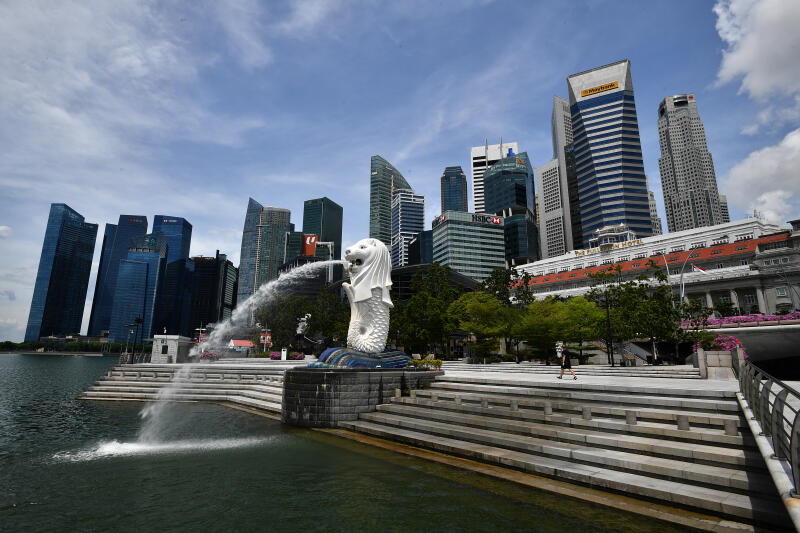Coronavirus: Circuit breaker extension brings new round of downgrades in growth, employment
Sign up now: Get ST's newsletters delivered to your inbox

Retrenchments may spike to 45,600.
ST PHOTO: LIM YAOHUI
Follow topic:
SINGAPORE - Singapore's decision to keep most of its economy closed and people at home for another month will lower economic growth and raise job losses, said analysts.
The latest cut to the gross domestic product (GDP) growth and employment outlook came from DBS Bank, following earlier downgrades by OCBC Bank, UOB Group and Maybank.
DBS now expects the coronavirus-driven recession to be deeper and more protracted, with the economy shrinking 5.7 per cent this year.
Retrenchments may spike to 45,600, far higher than any of the past recessions, while resident unemployment rate could rise to a seasonally adjusted 4.2 per cent.
Should Singapore fail in containing the outbreak by the end of the circuit breaker on June 1, GDP growth could plunge to as low as minus 7.8 per cent, said the bank's senior economist Irvin Seah in a report on Monday (April 27).
The circuit break was extended after a spike in infections at dormitories housing foreign workers, lifting up the number of Covid-19 cases in Singapore to the highest in South-east Asia, and the fifth highest in Asia, behind China, India, Japan and South Korea.
Given that the new measures are even more restrictive than earlier ones, they will take a heavier toll on businesses already struggling with the existing challenges of poor earnings and weak cash flows.
The Government has offered more help to businesses and their employees, taking the total fiscal response to the pandemic to $63.7 billion, DBS estimated. Without government help, the economic pain could have been even more acute, Mr Seah noted.
Services and construction are two sectors that will be hardest hit by the circuit breaker extension.
"The extension to June 1, though necessary to contain the outbreak, will be a nail in the coffin for many locally oriented industries, for example, construction, retail, F&B, business services," he said.
The relief measures will help, but some businesses with weaker financial standing may not survive this crisis - implying a spike in company cessations, bankruptcy and job losses ahead.
Companies may have to shed more headcount to bring manpower costs in line with the fall in earnings. Though resident workers account for about 62 per cent of the total workforce, retrenchments involving local workers will be disproportionately less due to policy measures aimed at safeguarding jobs.
While foreign workers will account for the bulk of the retrenchments, resident unemployment will still rise.
DBS Bank's GDP growth estimates for the year are now lower than government guidance of minus 4 per cent to minus 1 per cent.
OCBC expects Singapore to suffer an even more severe recession.
Ms Selena Ling, OCBC's head of research and strategy, said a contraction of 6 per cent to 10 per cent cannot be ruled out for the year.
The bleaker end of the range assumes that a recovery may be delayed as business and consumer confidence remain dented into the third quarter and any second-half stabilisation is even more subdued than earlier expected, she said.
UOB economist Barnabas Gan downgraded Singapore's growth to minus 4 per cent, down from a previous estimate of minus 2.5 per cent.
Maybank has cut its 2020 GDP forecast to minus 7 per cent, from minus 6 per cent, due to the extension of the circuit breaker.
But the bank sees a much larger impact on employment, with job losses expected to reach 200,000. More than half of those losses will be borne by foreigners, Maybank analyst Chua Hak Bin said.

